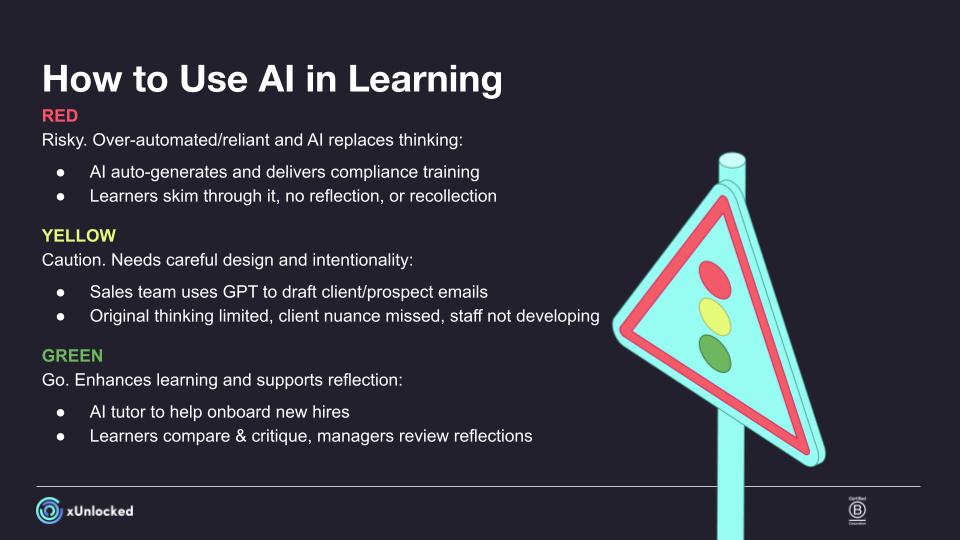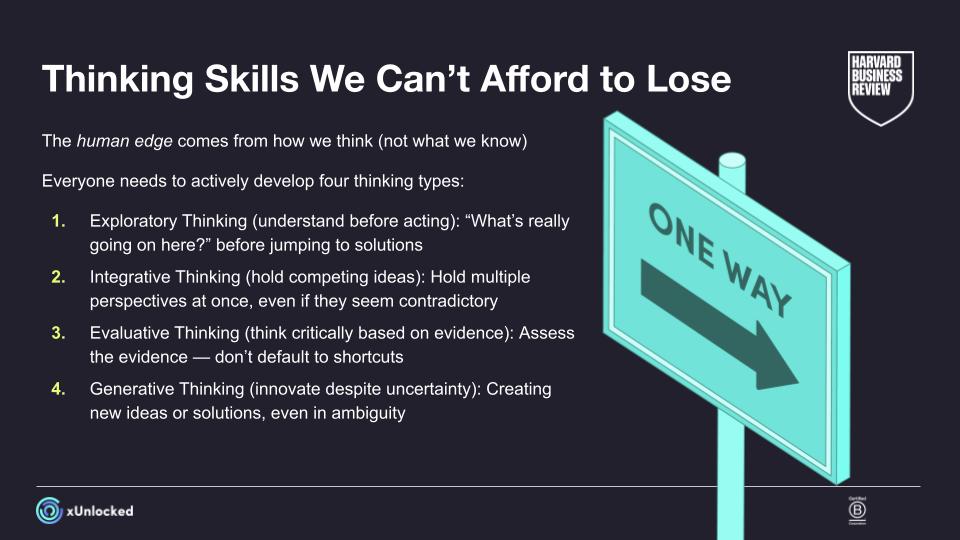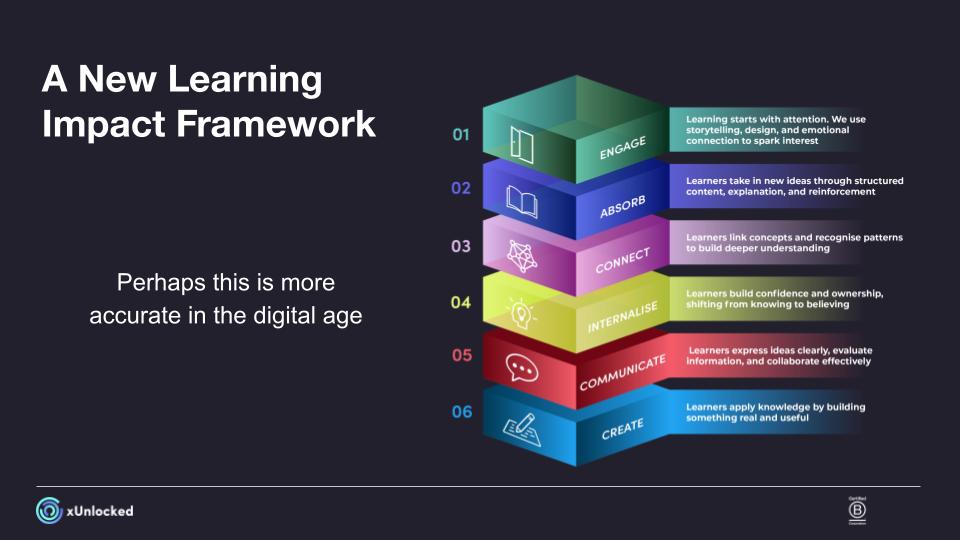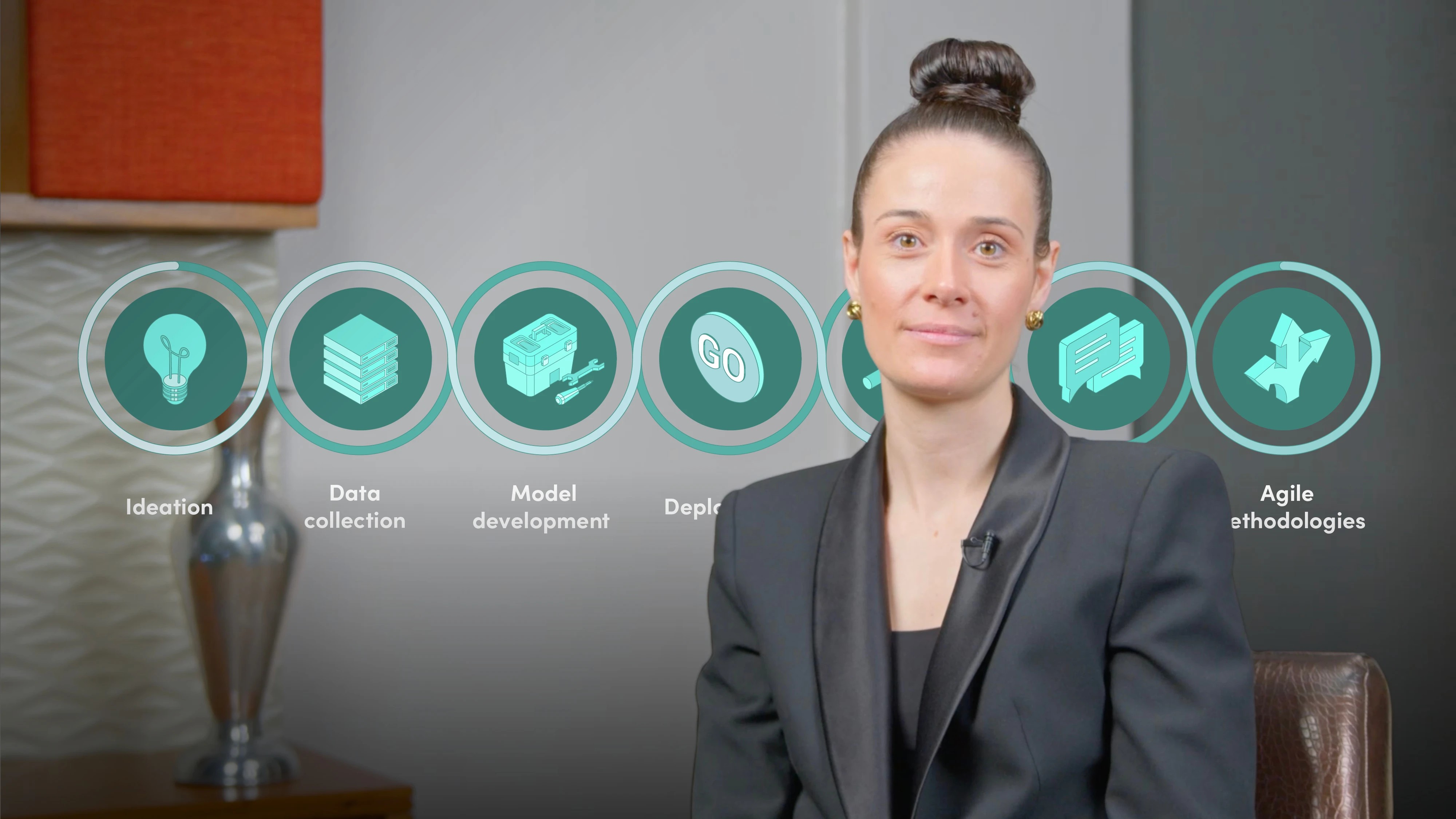
Five inconvenient truths: Balancing AI and human skills for effective learning

Prasad Gollakota
20 years: Capital markets & banking
Reclaiming critical thinking in the age of AI

Artificial Intelligence (AI) has revolutionised the learning landscape, offering unprecedented opportunities for personalised and efficient education. AI tools, such as generative models and intelligent tutoring systems, provide learners with instant access to information and tailored assistance. However, while these advancements are promising, they also present significant challenges that educators and learners must navigate carefully.
AI's ability to deliver correct answers can create an illusion of competence without fostering genuine understanding. This phenomenon, termed "cognitive offloading", occurs when learners rely too heavily on AI, bypassing the critical thinking processes essential for deep learning. The temptation to use AI as a shortcut rather than a learning aid can undermine the development of essential cognitive skills, leading to superficial knowledge and long-term learning deficits.
The solution requires a dual approach:
- Understanding what constitutes real learning in AI, rather than cognitive offloading
- Underpinning effective learning with the right foundational skills
The following, which highlights key themes made in our presentation at the Learning Technologies Exhibition and Conference 2025, explores the route to success, including a few pitfalls to avoid along the way.
Inconvenient truth 1: Do not mistake correct answers for actual learning
Researchers at the University of Pennsylvania ran a large field experiment with nearly 1,000 high school students studying mathematics. Students were randomly assigned to one of three groups:
- A control group with no AI.
- A group using a basic ChatGPT-style assistant (GPT Base).
- A group using a specially designed AI tutor (GPT Tutor), which gave hints instead of answers.
Each session included a teacher-led review, a practice session (with or without AI), and a final exam without any AI support.
Students using the GPT Base tool, showed a 48% improvement in solving the practice problems compared to students who had no AI access. However, when the students were later tested in an exam without any AI support, their performance dropped; they scored 17% lower than the students who had never used AI at all (the control group). This suggests that the students may have relied too heavily on the AI during practice, using it more as a shortcut than a learning aid, which ultimately hurt their ability to solve problems independently.
In contrast, students who used GPT Tutor, an AI tutor designed to promote reasoning and critical thinking, experienced a 127% improvement on practice problems. Unlike the basic version, GPT Tutor provided step-by-step hints and encouraged students to explain their thinking, without giving away full answers. When AI support was removed, these students performed just as well on exams as those who never used AI, showing no drop in learning.
This highlights the importance of designing AI tools that support active engagement rather than passive answer-seeking.
Inconvenient truth 2: If users overtrust AI, they’ll bypass their own thinking
Cognitive offloading, where individuals rely on external tools to reduce cognitive load, is not a new concept. We see it in everyday technologies like calculators and GPS. However, the rise of generative AI tools amplifies this effect, potentially diminishing independent problem-solving skills and reducing outcome diversity due to standardised AI-generated responses.
A study of 319 knowledge workers who regularly use generative AI tools , conducted in 2025 by Carnegie Mellon University, highlighted these risks. Participants provided 936 real-world examples of AI use in their work tasks. The study analysed these examples to assess how AI usage affects critical thinking.
The findings showed that higher confidence in one’s own abilities was aligned with increased critical thinking. However, greater confidence in AI outputs correlated with reduced critical thinking and problem-solving capabilities.
This shift from active engagement to passive oversight can erode the foundational skills necessary for innovation and adaptability in the workplace.
AI In Learning

To leverage AI effectively in learning, it is crucial to design systems that act as coaches rather than crutches. AI should guide thinking, prompt reflection, and encourage learners to verify and critique its outputs. Here are some strategies to promote meaningful learning with AI:
- Encourage critical engagement: prompt learners to ask, "Why is this the right answer?" and compare AI outputs with their own reasoning.
- Limit AI reliance: restrict AI use to specific contexts that enhance, rather than replace, cognitive effort.
- Foster reflective practices: implement activities that require learners to reflect on their learning process and outcomes.
- Support foundational skills development: Emphasise the importance of developing information-analysis and problem-solving skills to prevent cognitive atrophy.
Inconvenient truth 3: If learners don’t trust the content, they’ll bypass the system
So, how do we build the foundational skills required to use AI effectively in learning? The first step is to address the growing digital learning gap.
According to the State of Digital Learning Report 2025 survey of Learning & Development (L&D) leaders and employees in organisations with over 1,000 employees across North America and Europe, today’s learners are disengaged:
- 57% (60% in 2024) rate their digital learning as fair to poor
- 66% (60% in 2024) say internal learning isn’t relevant to their role
- In 2024, 64% of Gen Z said they turn to AI or Google before using internal tools
Inconvenient truth 4: It’s not a tools problem, it’s a tone problem
How is your leadership showing, not just saying, that learning matters? When leaders talk about learning but don’t live it, usage drops and trust evaporates. Leaders themselves need to commit to continuous learning, showcasing their own achievements and learning aspirations.
It is also vital for leadership to set the right tone. ‘Tone from the top’ isn’t a slogan, it’s the engine behind engagement: use senior leaders to champion the learning cause.
And boost engagement by focusing on learning and content expertise, using expert practitioners to ensure credibility. Focus on the learning-delivery experience, onboarding and creation, and working in partnership with your learning provider to ensure the content is tailored to your organisation’s unique needs.
Inconvenient truth 5: We’re chasing future skills, and
ignoring the foundations
With the right strategic and cultural pillars in place, learning can then focus on building those essential foundational cognitive skills. These skills, such as critical thinking, problem-solving, and the ability to navigate and interpret information, are the bedrock of effective learning and professional success. Organisations must prioritise the development of these skills to ensure their workforce is adaptable and capable of leveraging AI tools, without becoming overly dependent on them.
Understanding and communication are prerequisites for action. Before learners can effectively use technical skills, they must be able to critically assess information, hold multiple perspectives, and innovate despite uncertainty. Developing these cognitive abilities will equip individuals to thrive in an AI-enhanced world.
Many organisations still continue to perceive skills narrowly, focusing only on actionable or technical abilities like coding, machinery operation, or design. Before any action comes understanding & communication ( i.e. Information skills): the ability to work with information (e.g. navigate, filter, challenge and interpret information) is critical. Organisations with strong information skills exhibit greater agility and problem-solving capacity, according to the Harvard Business Review).

Building a future-ready learning framework
Creating a balanced learning framework that integrates AI while fostering human cognitive skills requires a holistic approach. Organisations, educators, and policymakers must collaborate to develop training programmes that emphasise both foundational and emerging skills. Here are the key components of a future-ready learning framework:
- Leadership and culture: Cultivate a culture of learning where senior leaders champion and model continuous education and critical engagement with AI.
- Tailored training programmes: Design occupation-specific training that addresses the unique digital skill requirements of different roles.
- Resource provision: Provide resources and support that help learners use AI tools effectively while maintaining their critical thinking abilities.
- Continuous improvement: Regularly assess and update learning programmes to reflect the evolving landscape of AI and digital skills.

By harmonising AI tools with human cognitive skills, we can create a learning environment that not only enhances immediate performance but also builds the capacity for long-term success and innovation. This balanced approach will ensure that learners are not only proficient in using AI but are also equipped with the critical thinking and problem-solving skills essential to thriving in the digital age.

Prasad Gollakota
Share "Five inconvenient truths: Balancing AI and human skills for effective learning" on
Latest Insights

Essential data skills: Mastering causation in data-driven decision making
11th August 2025 • Prasad Gollakota

Beyond the fear of AI: The role for learning in the data-driven business
27th March 2025 • Henry White














